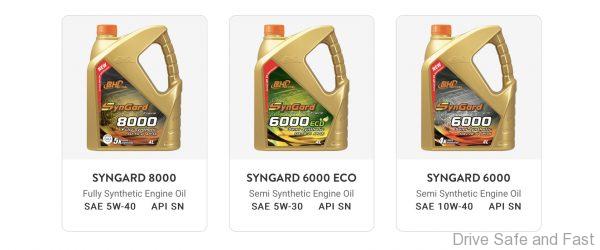Why Engine Oil Prices Won’t Plummet Like Petrol Has
We had an interesting set of questions from a reader recently. He asked, among other things, when we could expect the price of engine oil to reduce. This is pertinent, given the price of crude oil and hence petrol and diesel, has plummeted.

Unfortunately, unlike the price of petrol and crude oil, engine oil price data is not tracked online and tough to ascertain. We’ve posed this question to a friend’s spare parts reseller to get an answer.

His answer is this:
If this is the new normal for oil prices, then there might be a decrease in prices. But that will take months, perhaps even 6 months to reflect in the market.

In the mean time, distributors have already purchased their stock at prevailing prices and resellers will have to keep prices high to retain their margins.

For now, it’s probably just the manufacturers who benefit by producing and stockpiling more engine oil while crude oil is priced lower.
To better understand the situation, here’s some context:
- Engine oil is a lubricant and not a fuel. It is used infrequently and when times are tough consumers and some businesses can stretch the time between oil changes with little penalty.
- Because prices are not government regulated, competition in the lubricant market is different from the petrol market.
- There are also at least 3 main types of engine oils (Mineral, semi-synthetic, and fully-synthetic). Some synthetic blends are derived from natural gas (Which hasn’t fallen as far as crude oil). This also means that different engine oils probably have different percentages of liquid that is derived from crude oil.
- Each manufacturer will have its own brand of engine oil with different additives and even different percentages of additives. With branding, manufacturers are able to exercise more control of the price per litre of engine oil. It goes from being an interchangeable good to something with returning customers who are willing to spend more even when cheaper substitutes are available.
- Manufacturers have already calculated their margins on these branded engine oils. All that money spent on apps, customer loyalty programmes, advertising and research must still be accounted for. Of course petrol incurs similar costs as well, but as we mentioned in point 1., petrol is a fuel and has a different set of considerations.

What this could mean is that in the short term, no, we will not see official resellers dropping prices. However, what we MAY see is a situation where parallel imported engine oils have lower prices on store shelves. This happened before and protecting local distributor networks from this is probably part of the reason some lubricant companies insist on a ‘Made for Malaysia’ badge on their oils.
What you may notice is that less popular brands or generic engine oil brands with much lower consumer demand may more quickly lower their prices. These usually come from local lubricant producers or those who repackage oils for markets with less buying power. With a more direct link between factory and storefront, these generic brand motor oils may quickly take advantage of the drop in crude oil prices.

The question is, are you willing to risk the longevity of your engine to save a few Ringgit? Some would argue that as long as the oil meets your owner’s manual’s specifications and the SAE’s technical specifications, there’s nothing to worry about. We have no comment on this matter, as the reputable engine oil we use barely costs RM100 to change every 6 months anyway. It’s a small price to pay to keep our 30 year old car running.